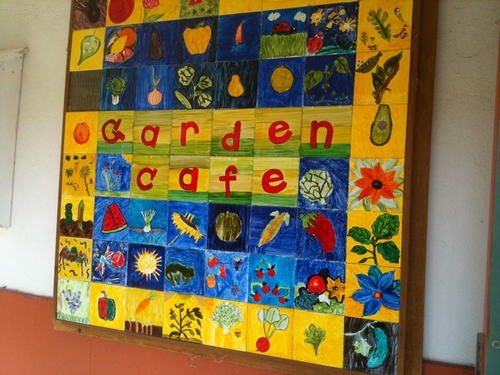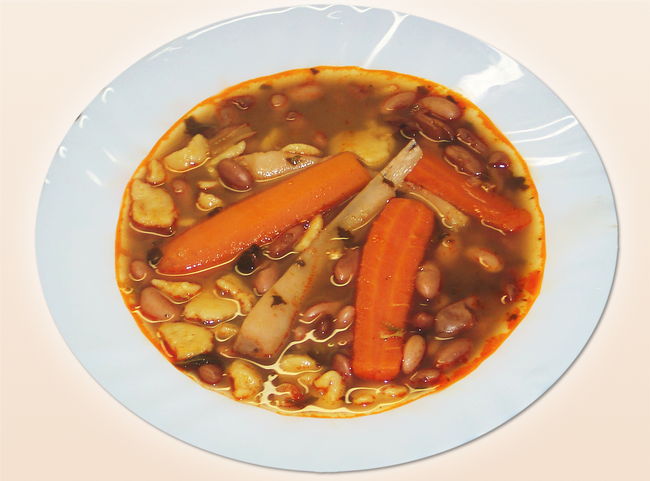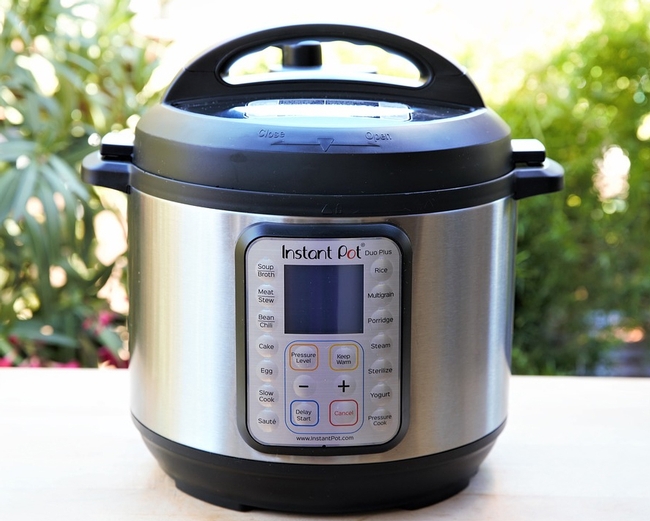
Posts Tagged: cooking
UC helps home cooks turn their passion into profits
In Riverside County, 65 cooks have been approved by the county Environmental Health Department to cook and sell meals to their neighbors from their home kitchens. These innovative entrepreneurs are the first in California to take advantage of a new legal path that legitimizes and regulates what has long been part of an informal economy in many communities.
The Riverside County cooks are cooking as Microenterprise Home Kitchen Operations (MEHKOs). MEHKOs are small businesses (only $50,000 gross sales per year allowed, adjusted annually for inflation) that involve home cooks preparing and selling a limited number of hot meals from their home kitchens. One of the intentions of MEHKOs is to create legal and regulated options for home cooks currently operating informal businesses, many of whom are immigrants and members of minority communities.
The UC Sustainable Agriculture Research and Education Program (UC SAREP), a statewide program of UC Agriculture and Natural Resources, is working with the COOK Alliance, a coalition of home cooks and their supporters, to organize a virtual convening of home cooks, their advocates and county officials and staff. This convening will involve cooks sharing their experiences and discussions among county officials, regulators and advocates for cooks about the process of legalizing and operating MEHKOs in other counties.
The Home Cooked 2020 convening will be held via zoom on October 20 and 21, 2020, from 1 to 3 p.m. each day. Everyone is invited to join the discussion. Participation is free, but registration is required. Everyone who registers will be sent log-in information for the Zoom meeting. Register here: http://ucanr.edu/homecooked.
Denise Blackmon, proprietor of Soul Goodness, a licensed Riverside County MEHKO, says, "Being able to operate a home cooking business is especially helpful because I'm the single parent of a special needs son. This lets me work around his schedule when I am able and help support my family." Blackmon will be one of the speakers, on a panel with other home cooks, at the upcoming online event.
The option for California counties (and the four cities that have their own Environmental Health Departments) to allow permitting of MEHKOs within their counties was approved by state passage of The Homemade Food Operations Act (AB-626) in 2018, amended by AB 377 in 2019. When permitted by a county government, MEHKOs are allowed to produce and sell limited quantities of home-cooked meals from a home kitchen in any zoning in the county, including in municipalities within the county. The program is regulated, and home kitchens are inspected by the Environmental Health Department of the county that opts-in to AB-626. As of October 2020, Riverside County is the only California county that has permitted MEHKOs, although Solano, Imperial, San Mateo, Santa Barbara and the City of Berkeley are all in the process of implementing regulations for MEHKOs. Several other counties are considering doing so. Home Cooked 2020 will feature county officials and staff discussing the issues and process for issuing licenses with cooks and their advocates. The program will include break-out rooms for cooks to talk with cooks, advocates to share strategies, county staff to talk with each other across county lines, and for those helping market and support home cooks to meet together.
The COOK Alliance, with a national membership of nearly 5,000 cooks and advocates, has been since 2018 the primary advocate for home cooks, supporting county advocacy efforts for opting into AB-626 and providing education for county staff and home cooks about MEHKOs.
During the COVID19 pandemic shut-down of restaurants and catering businesses across California, many professional chefs have found themselves out of work. Some of these chefs established informal pop-up cooking businesses to try to support themselves and provide healthy cooked food for their communities. Some of these unlicensed establishments, including the "Brokeass Cooks" from Oakland, were shut down by county health departments, generating stories in local newspapers and interest in their predicament. The COOK Alliance is working with some of these chefs to advocate for legal MEHKO operations in Alameda County and other counties where they have operated. Bilal Ali, one of the Brokeass cooks, will be talking on the panel of cooks at Home Cooked 2020.

This project is supported by a Public Impact Research Initiative grant from the UCD Public Scholarship and Engagement unit.
Learn more, register here, or contact coordinator Penny Leff, paleff@ucanr.edu.
It’s electric?! Breaking down electric pressure cookers
You may have heard the buzz about electric pressure cookers. Even if you don't follow kitchen trends, this piece of equipment may take some of the "pressure off" of preparing meals. From personal experience, I can say that they're also quite fun!
Pressure cooking vs. pressure canning
Pressure cooking uses trapped steam to create a pressurized environment for cooking food. This combined with heat can greatly decrease cooking times for many items. Foods like dried beans, meat roasts and rice can have a significantly shorter cooking time when they are pressure cooked. Some people may recognize the term pressure canning which uses pressure to preserve foods. While they are similar in the process, only equipment specifically labeled for pressure canning can be used safely for food preservation.
Why so popular?
Pressure cookers existed first as a stove top version that required manual monitoring of pressure. Electric pressure cookers arose to help streamline and simplify the process. They have digital settings and controls so are generally easy to use. The quick cooking time and ability to electronically set time and temperature also increase their consumer appeal. In addition, the cooker is a closed system which helps retain moisture, nutrients and flavor. Unfortunately, there is not a lot of scientific research on nutrient retention in pressure cooking. One study did find that pressure cooking retained more vitamin C in broccoli than compared to boiling or steaming.
Additionally, electric pressure cookers are more energy efficient than stove top or oven cooking. They are insulated which prevents energy from being lost in the cooking process.
Becky Hutchings, a family and consumer sciences educator for University of Idaho Extension, currently offers a very popular introduction to electric pressure cookers class in her community. She feels electric pressure cookers can help people save money and time with cooking. Hutchings has said, “I think with pressure cookers, people are scared that it's going to blow up. Once they use their electric pressure cooker they will realize how easy and fast it is. They wonder how they ever lived without it.”
Safety concerns
As with any piece of equipment, there are safety concerns. Some models are considered “multi cookers” and may have a setting for slow cooking. This may be misleading as the slow cooker setting will not pressure cook. You cannot leave food in the cooker to be pressure cooked later because it will be in unsafe temperatures and will increase the risk for foodborne illness. For example, if you are planning to cook a pork roast in the electric pressure cooker, you cannot prepare it in the morning and leave it out on the counter until the evening. You will have to keep the food refrigerated until it is ready to be cooked.
Additionally, standard food safety practices should still be followed. Even if a roast looks done, check that temperature! Electric pressure cookers can be easily reset to cook for additional time if needed.
A third and significant concern is canning with electric pressure cookers. UC Cooperative Extension takes education on food preservation very seriously. We only support research-based and tested recipes for preservation. Many brands of electric pressure cookers provide recipes for canning. However, NONE of the brands have been able to supply their research or information supporting these recipes
The National Center for Home Food Preservation has a great article explaining why this is a concern. In short, electric pressure cookers have not been studied to ensure the necessary requirements for safe canning. Therefore, UC Cooperative Extension does NOT support or encourage canning in electric pressure cookers.
Hutchings explains it quite simply as “You are putting your life at risk."
(Pressure canning is a whole other wonderful field of cooking and preservation. We have many resources and articles available to learn more about it.)
Where to go from here:
While some models may be more “instantly” recognizable than others, there are many brands available for purchase. Just because a brand has popularity may not mean it is right for you. There are many online resources providing reviews and recipes for all the main brands of electric pressure cookers available. Prices of models range from $50 to $100. They are a more expensive piece of equipment, but savings could be seen in reduced cooking time and energy efficiency. In addition, there is a lot of money saved when cooking at home when compared to ordering delivery or eating at restaurants. An electric pressure cooker may be tool you need to making cooking at home easy and accessible.
If you are a new electric pressure cooker owner looking for support, Hutchings has a Facebook support group: Cooking Under Pressure - An Electric Pressure Cooking Community. She shares recipes, resources and occasionally hosts Facebook Live lessons.
Resources:
- https://www.uidaho.edu/extension/news/story/cooking-pressure
- https://blogs.extension.iastate.edu/answerline/2016/11/21/electric-pressure-cookers/
- https://extension.usu.edu/foodsense/cook/pressure-cooking
- https://nchfp.uga.edu/publications/nchfp/factsheets/electric_cookers.html
Infusing nutrition education into an LA County vegetable garden initiative

These classes impart an array of useful skills onto beginner gardeners, potentially translating into positive outcomes, such as improved diet and savings on groceries.
What to do with all of that home-grown produce?

With funding from the UC Agriculture Sustainability Institute - Sustainable Agriculture Research and Education Program, we were able to incorporate nutrition lessons and cooking demonstrations into the 4-week garden series by training Master Gardener volunteers to deliver Fresh from the Garden lessons into low-income community gardens. This is a resource that was designed to increase gardeners' knowledge of healthful eating habits, while emphasizing the health benefits associated with a vegetable-rich diet. Each Fresh from the Garden lesson features preparation and tasting of a healthy fresh vegetable recipe. Through these lessons, the beginner gardeners learned how to store, prepare and cook a wide variety of home-grown vegetables alongside the gardening instruction.
Reaping the benefits of vegetable gardening

Through this project we have demonstrated promising results with the combination of gardening, cooking and nutrition instruction. We plan to continue the delivery of Fresh from the Garden in the coming year through the UC CalFresh Nutrition Education Program in coordination with the Master Gardener Program. CalFresh (formerly Food Stamp) participants are allowed to use their benefits to purchase seeds and plants for household consumption, which opens the door for exciting possibilities for this program!
Grant High School grows food and leadership
Recently, UC’s Agricultural Sustainability Institute gave me the opportunity to visit Grant Union High School in Sacramento to learn about their GEO Environmental and Design Academy, which includes a gardening and cooking program.

The school is in an economically challenged area, and about half the students are English language learners.
Teacher Ann Marie Kennedy said something interesting about the students enrolled in the program: “They are disconnected from agriculture, but they are not disconnected from food.”
The Grant garden is essentially a shared school and community garden, which I believe is one of the best models for school garden sustainability. Community gardeners have individual plots, but assist in the school garden areas. Some of the community gardeners have children or grandchildren enrolled at Grant, but others are connected to the school simply through their love of gardening and the opportunity to cultivate food.
During our visit, we worked alongside the students to harvest, wash and chop vegetables to make chicken and vegetable chow mein and garden-fresh salad for lunch. We also sampled Grant’s salsa, which is sold commercially, providing a real-life business incubator for seniors in the program.
The lunch was simple ... and simply amazing. Not only the food, but the chance to speak with students and learn about how the program has influenced their lives. The students said they are eating more fruits and vegetables and bringing the practice home to their families.
I ended my visit with enormous gratitude for the work of Grant Union High staff and profound awe for the students. I have a great deal of confidence in a future that includes their leadership.
But I also left with the idea that this exceptional program should not be the exception, but rather, the norm. If we are truly committed to a healthy future and a healthy nation, we need programs like this, that provide opportunities for youth engagement with soil, healthy food and mentors who will encourage their leadership abilities.
Food blogs everywhere!
Food blog here, food blog there, food blog everywhere — including this one! The popularity and variety of food blogs has exploded, and proves many of us are little foodies at heart. In doing research for this post, I have to admit, I couldn’t believe what’s out there, especially about cooking. From vegan to Indian to coffee to crock pots to cooking with kids to Asian grandmothers to organic, it’s all there waiting for you.
The popularity and importance of food content is well documented. Last summer, the Huffington Post reported on the results of the July cable news ratings. The Food Network beat out all of the cable news networks - FOX, MSNBC and CNN - in every demographic measurement. This in spite of the fact that July was a big news month because of the death of Michael Jackson.
In most cases, blogs are about much more than food. Sometimes you get to know the writer’s family or garden or politics. When you find a good one, the photos are stunning. Whether or not we make the food that’s being blogged about, we can still have a little “flog” experience right in our own kitchen.
Here’s a link to the best cooking food blogs according to delish.com — guilty, but calorie-free, pleasures!






